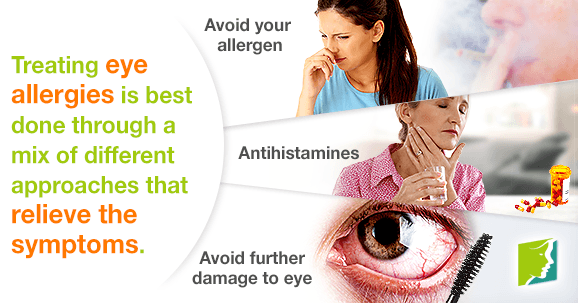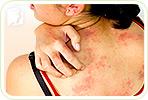Eye allergies can develop spontaneously and occur when the body's immune system becomes over sensitized to something in the environment that is generally considered normal or harmless. Eye allergies can be very painful, and can even start affecting everyday life if they are too severe. Read on to find out ways of preventing eye allergies and reducing this discomfort.
What Is An Eye Allergy?
When the allergen (e.g. pollen, dust, or perfume) comes into contact with the eye, antibodies near the eye area will interpret it as a foreign and harmful intruder that needs to be fought. Histamine is released as well as a number of other chemicals, and the end is result is normally itchy, dry, red, and watery eyes.
Symptoms can range from being mild and just a slight nuisance, to being so severe that vision is impaired. Symptoms of eye allergies can mimic those of more serious eye diseases, so it is important to check with a doctor that your reactions are definitely caused by eye allergies and not a condition that needs urgent treatment.
What Triggers Eye Allergies?
There are many things which could trigger eye allergies, and each body is different, so potentially it could be anything. However, there are a few substances that are the most common causes of eye allergies, and these include:
- Plant pollen
- Pet fur
- Dust mites
- Mould
- Perfume
- Exhaust fumes
- Smoke
How to Prevent Eye Allergies
Preventing eye allergies is best done through a mix of different approaches that intertwine prevention, cure, and symptom relief. A few helpful tips are listed below.
Avoid Your Allergen
The first step towards preventing eye allergies is obvious, but can be challenging, depending on the allergen. Some allergens might be obvious, but other people might need to keep an eye on when they get symptoms or get an allergy test in order to work out what is causing their eye allergies. Avoiding the allergen could mean checking pollen counts before going outside to particular areas, avoiding smoking areas, or not keeping pets.
Antihistamines
Avoiding an allergen at all times is normally going to be quite impossible, so taking an anti-histamine when you know you are to come into contact with one will prevent your allergy from taking hold. Sometimes this will mean taking them as a precaution in summer, or only taking them now and again when visiting a person with a pet, for example.
Avoid Further Damage to Eye
When an eye is red, itchy, and watery, it is best to reduce these symptoms by not exacerbating them further. Therefore, if you are suffering from symptoms, avoid eye makeups and applying creams too close to the eye area. It could also help to wear glasses instead of contact lenses until the infection clears up, and to make sure that all utensils and objects that come into contact with the eye are new, sterilized, or thoroughly cleaned. Also avoid touching the eye, as bacteria from the hands can worsen symptoms.
Preventing eye allergies is important for your own comfort and to avoid any long-term damage to the eye that might occur. Sometimes, even with the best of intentions, symptoms will still arise, but by following the basic tips above, you should be able to drastically reduce the frequency and intensity of the attacks. Also, read about common causes of allergies or some home remedies for the swollen eyes.
Sources
- America College of Allergies, Asthma & Immunology (2014). Eye Allergies. Retrieved December 5, 2014, from http://acaai.org/allergies/types/eye-allergies
- Medline Plus (2013). Allergic rhinitis. Retrieved December 5, 2014, from http://www.nlm.nih.gov/medlineplus/ency/article/000813.htm
- Medline Plus (2013). Smell - impaired. Retrieved December 5, 2014, from http://www.nlm.nih.gov/medlineplus/ency/article/003052.htm
- Medline Plus (2013). Sneezing. Retrieved December 5, 2014, from http://www.nlm.nih.gov/medlineplus/ency/article/003060.htm




